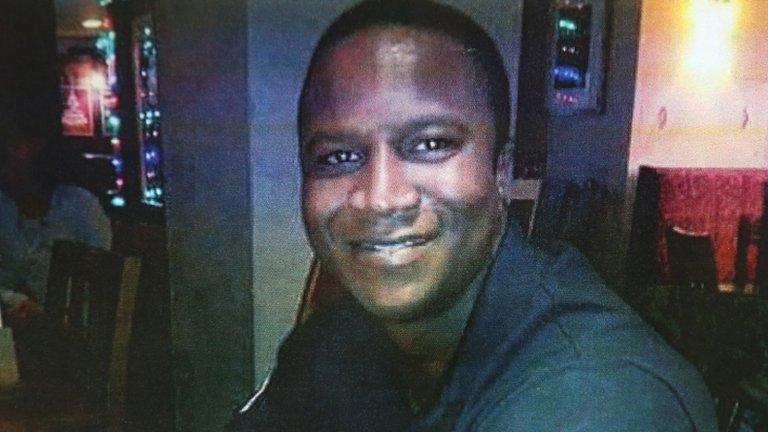Sheku Bayoh lawyer plans civil action
- Published
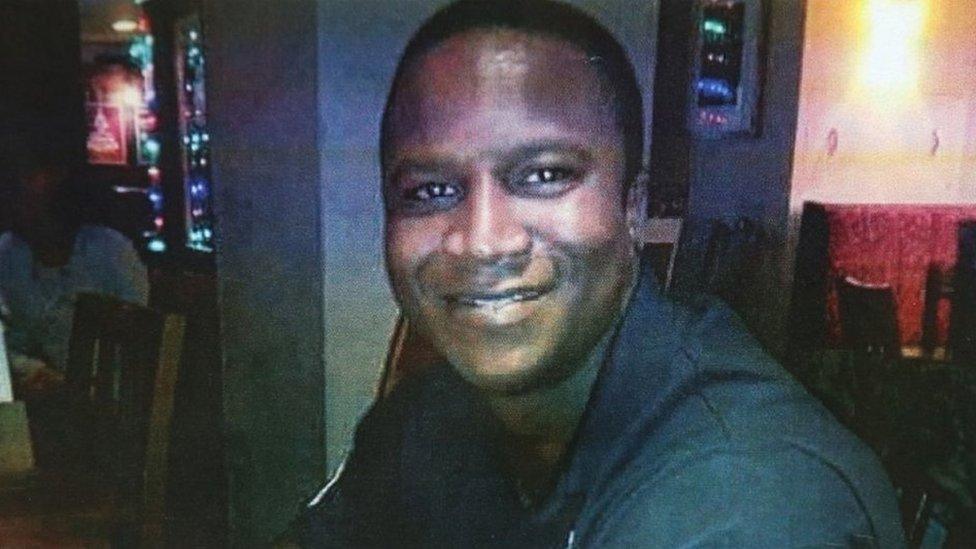
Sheku Bayoh died in Kirkcaldy in May 2015
The lawyer for the family of Sheku Bayoh has said he intends to launch a civil action against Police Scotland.
The 31-year-old trainee gas engineer died after being restrained by officers in Kirkcaldy in May 2015.
Lawyer Aamer Anwar said he wanted to know why officers used batons, CS spray, leg restraints and handcuffs to subdue him.
Police Scotland said it could not comment while the case was being investigated.
A BBC documentary tracing the 20 months since the death of Sheku Bayoh will be broadcast on Tuesday night.
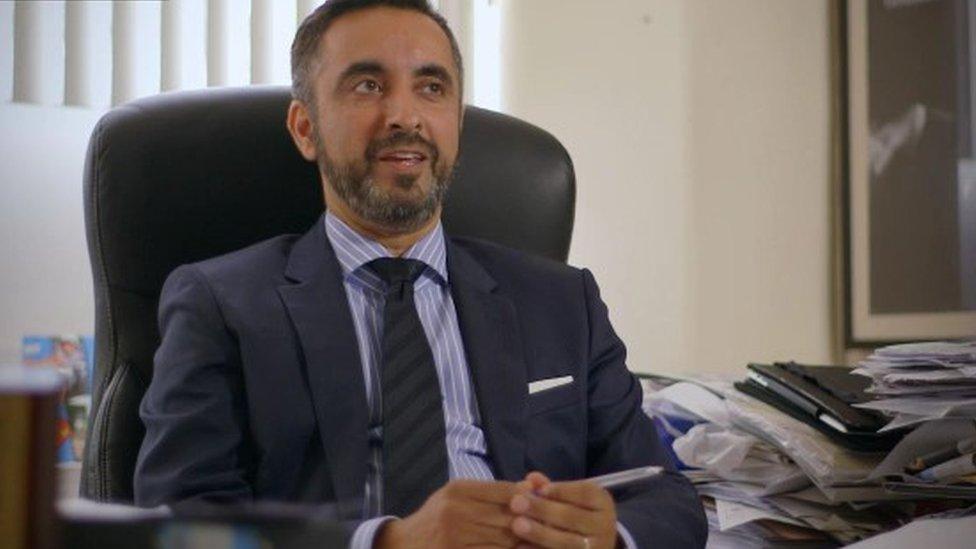
Aamer Anwar says he will launch a civil action against Police Scotland
In it, Mr Anwar tells the family that a civil action will mean "we are able to ask the questions we want to ask".
He says: "What went on? Was it excessive violence that was used? That is the fundamental question.
"Why did police officers feel the need to have this treatment of Sheku that day and did it result in his death?"
In August last year, 16 months after Mr Bayoh's death, the Police Investigations Review Commissioner (Pirc) provided its report to the Lord Advocate, Scotland's top law officer.
That report remains confidential and the Crown Office is now considering if there should be a criminal prosecution.
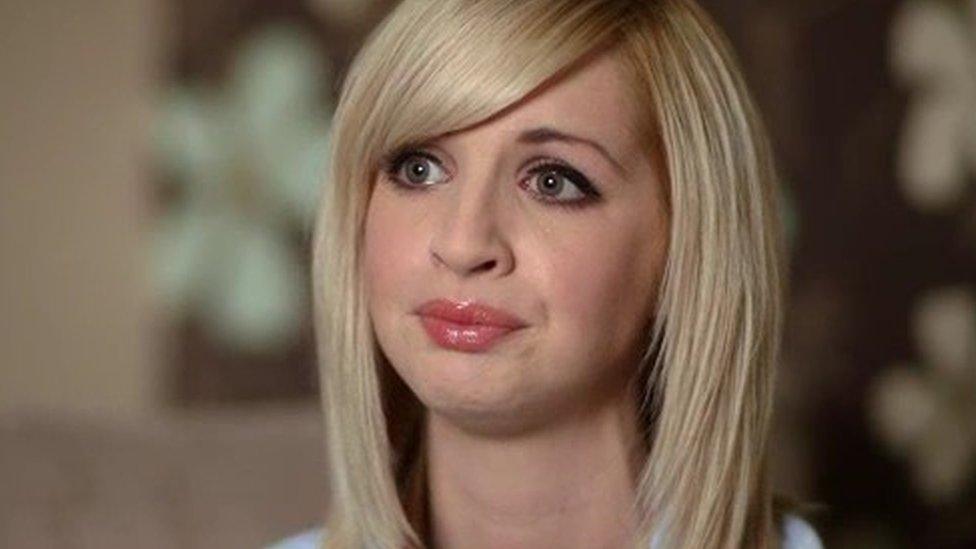
Sheku Bayoh's partner Collette Bell said she wanted his death to be recorded as positional asphyxiation
The BBC documentary follows the family as they campaign for full disclosure of the facts and try to piece together what happened.
They are shown meeting First Minister Nicola Sturgeon and viewing CCTV footage showing Mr Bayoh's last moments.
At the time Mr Anwar said: "The Bayohs have always said that if Sheku broke the law, then the police had a right to act, but any force used had to be legitimate and proportionate.
"He was not a terrorist, he was not brandishing a knife at police officers, he was not carrying a knife when officers attended, nor was he 6ft-plus with superhuman strength. His family state that he did not deserve to die."
Complex investigation
A toxicology report said that the drug MDMA (ecstasy) had been found in Mr Bayoh's system, as well traces of psycho-stimulant A-PVP, sometimes called Flakka. This drug has been linked to erratic behaviour.
Mr Bayoh's partner Collette Bell says: "I'm not prepared to accept anything on the death certificate except positional asphyxiation because if he had not come into contact with the police he would still be here."
In a statement, Police Scotland said: "We have been committed to operating with the Pirc and the Crown Office throughout the investigative process.
"We cannot comment on the events of 3 May 2015 while the Crown evaluates the independent findings submitted by the Pirc."
The Crown Office said: "The Pirc report has been carefully considered. The Crown requires to undertake further work before a decision can be made as to whether or not there should be any criminal proceedings.
"This is a complex investigation and a decision will be made as soon as possible."

How did Sheku Bayoh die?
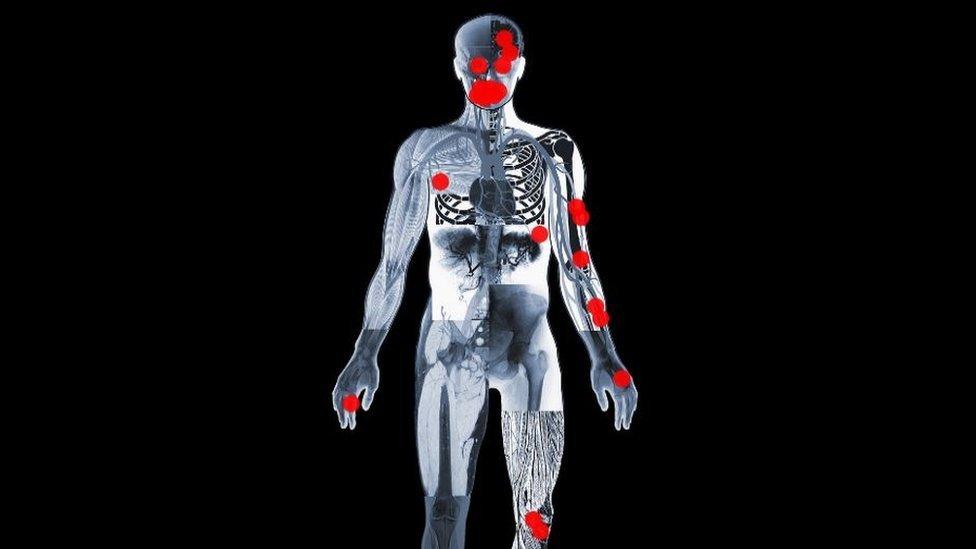
The post-mortem examination of Mr Bayoh revealed a series of injuries over his body, face and head, including a deep gash across his forehead
The post-mortem examination of Mr Bayoh revealed a series of injuries over his body, face and head, including a deep gash across his forehead.
Police had received a call on 3 May 2015 about a man behaving erratically and brandishing a knife in Kirkcaldy.
Mr Bayoh had taken the drug ecstasy and another drug A-PVP.
CCTV evidence seen by the family shows Mr Bayoh approaching the police at about 07:20. The BBC understands the pictures show that he did not have a knife.
At least two officers said they believed they could be facing a terrorist incident.
At least four, and up to six, officers, including PC Paton, were immediately involved in the encounter.
CS spray and police batons were used and within about 30 seconds, Mr Bayoh was brought to the ground, face down. Handcuffs and leg restraints were applied.
No longer breathing
Eyewitness reports suggested that officers were kneeling and lying on Mr Bayoh in order to restrain him.
Less than five minutes after the encounter began, Mr Bayoh was noticed to be unconscious and one officer radioed for an ambulance.
A further five minutes later, the ambulance still had not arrived, and an officer reported to base that Mr Bayoh was no longer breathing.
CPR was attempted by the officers, but Mr Bayoh arrived by ambulance at the town's Victoria Hospital, where his sister works, unresponsive. He was pronounced dead at 09:04.
A post-mortem examination revealed a series of injuries over his body, face and head, including a deep gash across his forehead.
Tiny blood spots, or petechial haemorrhages were discovered in his eyes - a sign of potential asphyxia.
The post-mortem examination declared he had died after taking the drug MDMA, while being restrained.
But a report by a renowned pathologist engaged by the Bayoh family is expected to say the cause of death was positional asphyxia - effectively being suffocated as a result of the position his body was in.
Positional asphyxia is a common cause of death in police custody where restraint is involved.
After Sheku is on BBC Two Scotland at 21:00 on Tuesday 31 January.
- Published10 August 2016
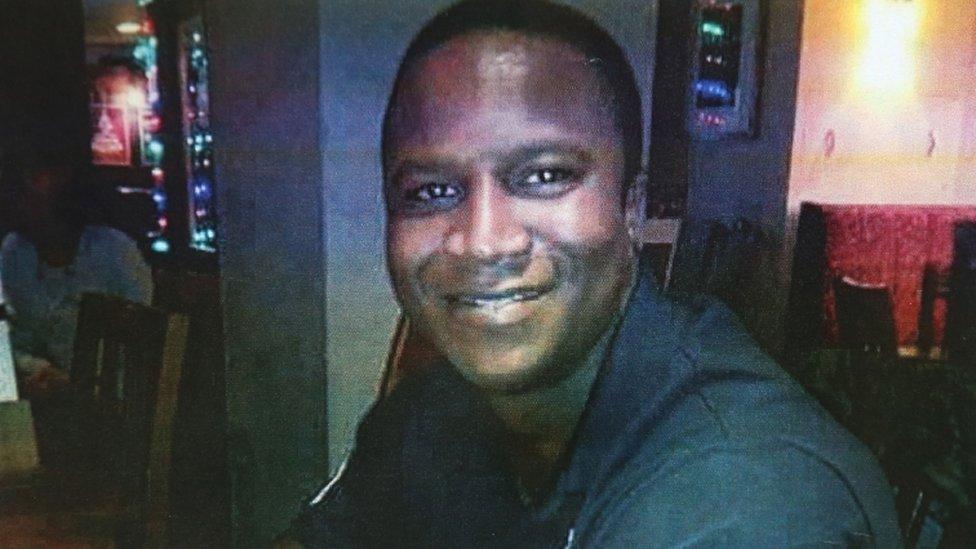
- Published15 October 2015
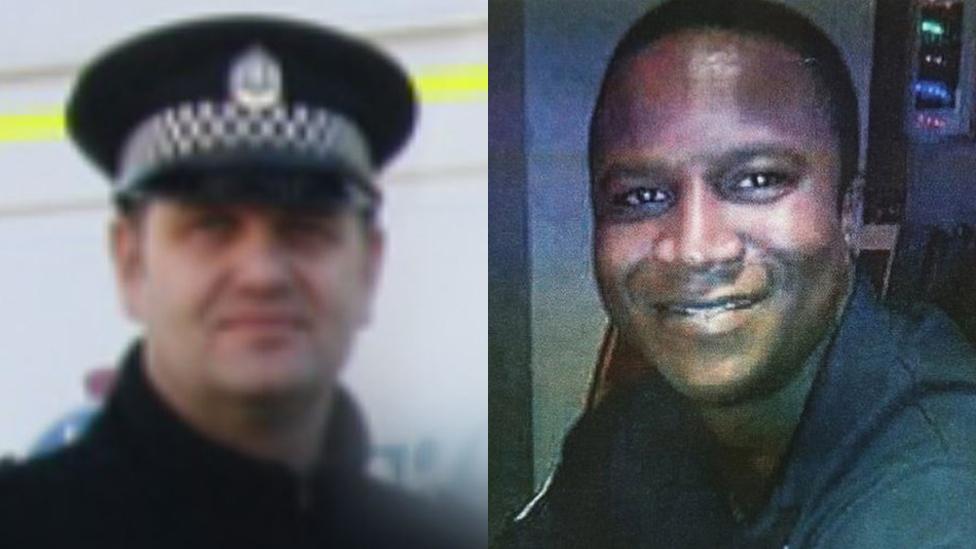
- Published8 October 2015
